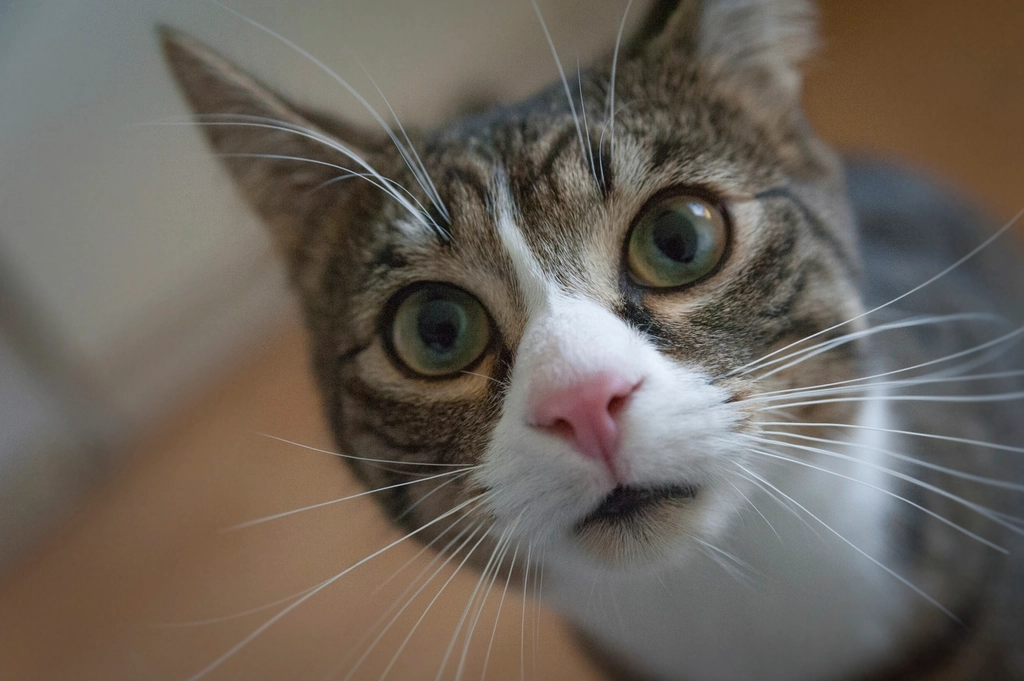Have you ever noticed your cat quietly settling in the same room as you, no matter where you move? It might seem like a small gesture, but for many cat lovers, this simple act can stir up feelings of warmth, connection, and even curiosity. Cats are often seen as mysterious, independent creatures, so when they choose our company, it feels like a rare and special moment. But what does it really mean when your feline friend decides to stay by your side? There’s much more to this behavior than meets the eye, and understanding it can make your bond with your cat even deeper.
Your Cat’s Natural Instinct for Safety
Cats are hardwired to seek out safe spaces. In the wild, a cat’s survival depends on finding secure spots away from predators or dangers. When your cat chooses to stay in the same room as you, it’s a powerful sign that they feel protected in your presence. You become their safe zone, a trusted guardian in their eyes. This behavior can be especially pronounced if your cat curls up in a spot where they can keep an eye on you or the room’s entrance. The comfort they find near you is a testament to the trust you’ve built. It’s not just about the physical space—it’s about the sense of security that comes with your companionship.
Bonding and Social Connection
Though cats have a reputation for independence, they are deeply social animals, especially with those they trust. When your cat stays nearby, it’s their way of strengthening the bond between you. This subtle closeness is a cat’s version of companionship. They may not jump onto your lap or demand attention, but their presence speaks volumes. Some cats will quietly nap while you work, while others simply keep watch over you from a nearby perch. This behavior is a sign that they value your company and see you as part of their social circle. It’s their understated way of saying you matter to them.
Curiosity and the Feline Observer

Cats are natural observers, always alert to changes in their environment. Staying in the same room allows your cat to keep track of your activities and satisfy their curiosity. Maybe they’re intrigued by the way you tap on your keyboard, or perhaps they just want to be ready in case you head to the kitchen for a snack. This watchful presence is how cats learn about their world and the humans in it. Even if your cat seems disinterested, you might catch them following you with their eyes or flicking their ears at every sound you make. Their curiosity is a sign of intelligence and engagement with their environment.
Territory and Ownership
Cats are territorial by nature. Your home is their kingdom, and you are a key figure within it. When your cat chooses to stay in the same room as you, they may be asserting a sense of ownership over both you and the space. This is particularly true if your cat rubs their face on furniture or even on you—they’re marking their territory with scent glands on their cheeks. Sharing a room is a way for your cat to reinforce their place in the household hierarchy. It’s not possessiveness in a negative sense, but rather a way for your cat to feel anchored and at ease in their domain.
Seeking Warmth and Comfort
Cats are experts at finding the coziest spots in any home. Often, the room where you spend most of your time is also the warmest or most comfortable. Your body heat, soft furniture, or a sunbeam streaming through the window can all attract your cat. When they curl up nearby, it’s a blend of emotional comfort and physical warmth. Think of it as the feline equivalent of snuggling up with a soft blanket. Even if your cat seems aloof, their choice to remain in your presence is often a sign that they associate you and your space with relaxation and pleasure.
Health and Emotional Well-being
A content and healthy cat is more likely to seek out the company of their favorite person. Cats who are stressed, unwell, or anxious may hide or withdraw, so a cat that chooses to stay with you is usually feeling secure and happy. This behavior can be a reassuring sign that your care is meeting their emotional and physical needs. It’s also a way for your cat to self-soothe; your familiar presence can be calming during thunderstorms, loud noises, or other stressful events. When your cat gravitates toward you during uncertain times, it’s their way of seeking emotional support.
Communication Without Words
Cats are masters of subtle communication. When your cat chooses to stay in the same room, they’re sending you a quiet but powerful message. They might purr softly, blink slowly, or simply rest nearby without making a sound. These gentle gestures are their way of expressing affection, trust, and contentment. Unlike dogs, who may bark or wag their tails, cats often use proximity as a language of love. Paying attention to these small signals can help you understand your cat’s emotional world and deepen your connection. Sometimes, just being together is the loudest statement of all.

Growing up traveling and experiencing new cultures and wonders, I have had a passion for nature, adventuring, photography, and videography. I am currently working towards a BSc in Biodiversity and Ecology at Stellenbosch University, and I hope to specialise in Marine Sciences one day.
Please send any feedback to Feedback@animalsaroundtheglobe.com






